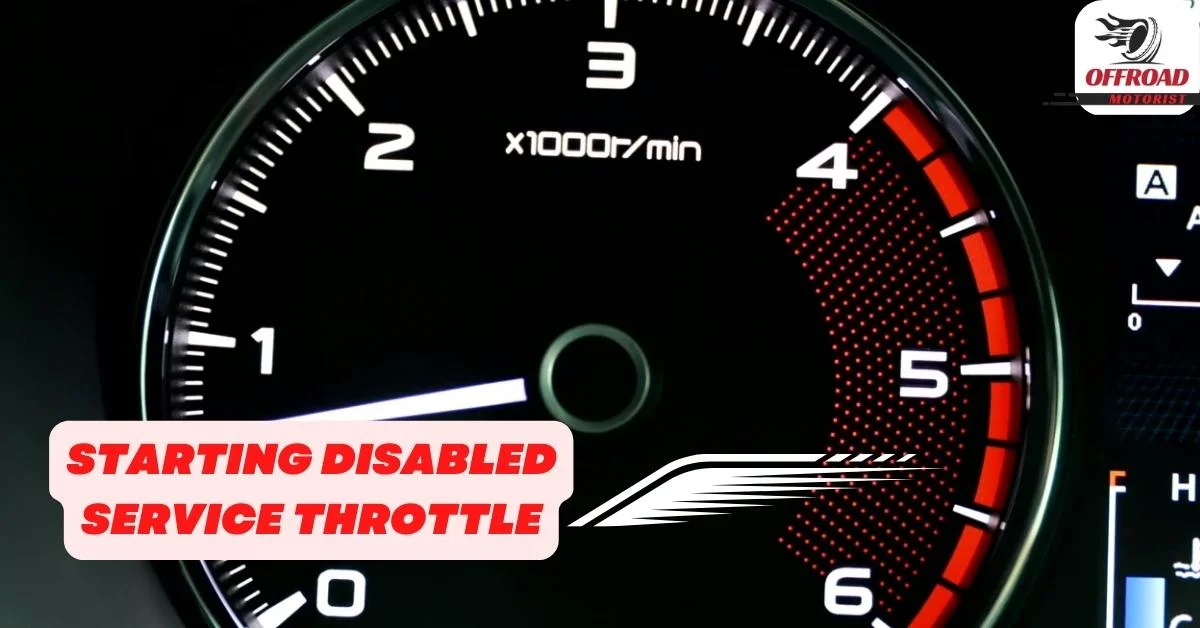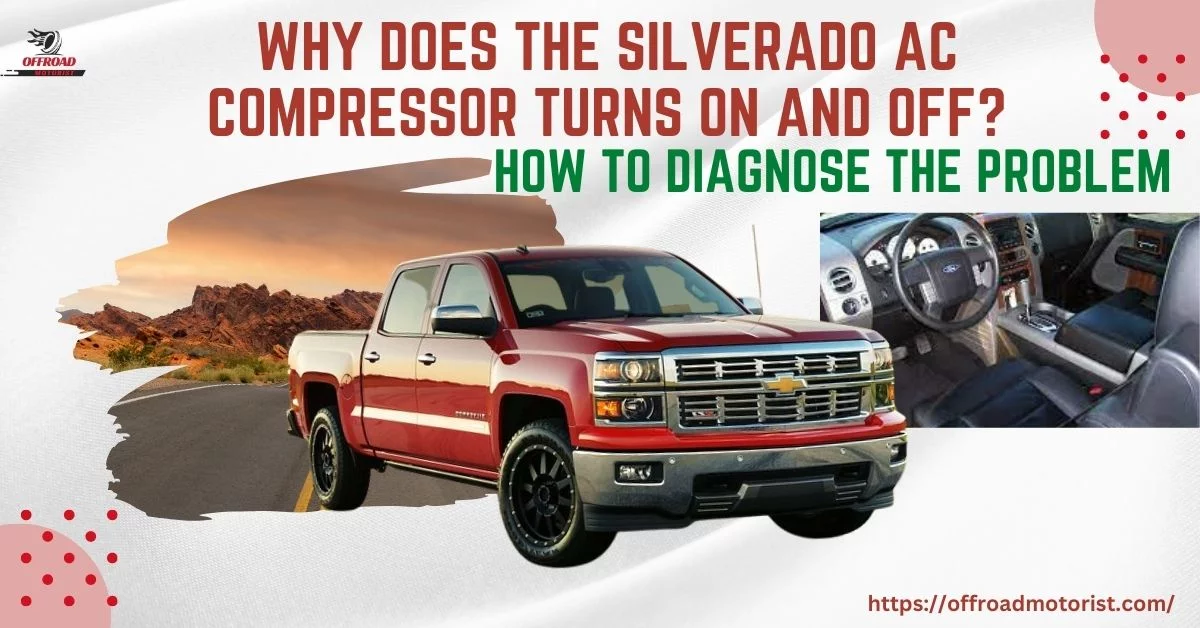Transmission Turmoil | How to Identify and Fix Chevy Cruze Transmission Problems
The transmission system is a critical component of any vehicle, including the Chevy Cruze. However, some Chevy Cruze owners have reported experiencing transmission problems, which can be a source of frustration and even danger on the road.
Transmission issues can also lead to costly repairs and affect the car’s overall performance. In this blog post, we’ll explore common Chevy Cruze transmission problems, including how to identify them and potential solutions to fix them.
Whether you’re a Chevy Cruze owner or someone in the market for a new car, this guide will help you understand what to look out for and how to address transmission issues to keep your car running smoothly.
Identifying Chevy Cruze Transmission Problems
Chevy Cruze transmission problems can manifest in various ways, ranging from subtle to severe. Some signs that could indicate a transmission problem with your Chevy Cruze:
01. Delayed or Rough Shifting: If your Chevy Cruze’s transmission is not shifting smoothly or is taking too long, it could be a transmission problem.
02. Strange Noises: Unusual grinding or whining noises coming from your transmission, especially when you change gears, could be a sign of a problem.
03. Transmission Fluid Leaks: If you notice a red or brownish liquid leaking from your Chevy Cruze, it could be transmission fluid. This could be a sign of a damaged transmission.
04. Warning Lights: If you see a warning light on your dashboard, it could indicate a problem with your transmission. For example, the check engine light could indicate that the transmission control module is malfunctioning.
05. Slipping Gears: If your Chevy Cruze’s transmission slips out of gear while you’re driving, it could be a sign of a problem. This can be dangerous and requires immediate attention.
Note: Ignoring these signs can lead to more severe problems and even endanger you on the road.
Steps to diagnose Chevy Cruze Transmission Problems
If you experience Chevy Cruze Transmission Problems symptoms, take your Chevy to a qualified mechanic or dealership for diagnosis and repair. Here are the steps to diagnose Chevy Cruze transmission problems:
- Check the transmission fluid level and condition: Low or dirty fluid can cause problems. Ensure that the fluid level is correct and that the fluid is clean and free of debris.
- Inspect the transmission pan and filter: Remove the transmission pan and inspect the filter for signs of damage or debris. Replace the filter if it’s damaged or clogged.
- Use a code reader or scan tool: Use a code reader or scan tool to read any transmission-related codes stored in the vehicle’s computer system. This can help identify the specific issue with the transmission.
- Conduct a road test: Conduct a road test to observe the vehicle’s behavior and check for symptoms like slipping gears, delayed or rough shifting, and strange noises.
- Perform a hydraulic pressure test: Use a pressure gauge to check the transmission’s fluid pressure and identify any issues with the valve body, pump, or other internal components.
- Conduct a stall test: Conduct a stall test to check the torque converter’s performance and ensure it’s locking up correctly.
- Inspect the driveline components: Inspect the driveline components, such as the driveshaft and axles, to rule out any issues with these parts.
These diagnostic steps will help you accurately identify any Chevy Cruze transmission problems. Proper diagnosis will help determine the necessary repairs and avoid costly or unnecessary fixes.
Causes of Chevy Cruze Transmission Problems
Chevy Cruze transmission problems can be caused by various factors, including:
- Manufacturing defects:
Some Chevy Cruze vehicles may have been built with defective transmission components, such as faulty clutches or torque converters. These defects can lead to premature wear and tear and eventual failure.
- Low fluid level:
Low transmission fluid can cause the transmission to slip or not shift properly. It’s important to check the fluid level regularly and maintain it at the correct level.
- Dirty or contaminated fluid:
Contaminated fluid can cause internal components to wear down, leading to transmission problems. It’s important to change the fluid regularly and use the correct type of fluid for the Chevy Cruze.
- Overheating:
Overheating can cause transmission fluid to break down and lose its ability to lubricate its internal components. Overheating can be caused by towing heavy loads, driving in extreme temperatures, or a malfunctioning cooling system.
- Normal wear and tear:
Normal wear and tear: As with any mechanical component, normal wear and tear can cause transmission problems over time. Regular maintenance and care can prolong the transmission’s life.
How to prevent future transmission issues:
- Follow the manufacturer’s maintenance schedule: Regular maintenance, such as fluid changes and inspections, can help prevent transmission problems.
- Use the correct type of fluid: Make sure to use the correct type of fluid for the Chevy Cruze’s transmission.
- Avoid overheating: Avoid heavy towing and driving in extreme temperatures to prevent overheating.
- Drive responsibly: Avoid aggressive driving and abrupt shifting, as this can put extra strain on the transmission.
- Address issues promptly: If you notice any transmission problems, such as slipping gears or strange noises, have the vehicle promptly inspected by a qualified mechanic or dealership.
Early diagnosis and repair can prevent further damage and avoid costly repairs in your Vehicles.
DIY steps for common transmission problems in Chevy Cruze
Some common Chevy Cruze transmission problems can be fixed with DIY steps. Here are a few examples:
Low fluid level: If the transmission fluid level is low, it can cause shifting problems. You can check the fluid level and top it off with the correct fluid type.
Dirty fluid: If the fluid is dirty or contaminated, you can perform a fluid and filter change. Be sure to use the correct type of fluid for the Chevy Cruze.
Faulty sensors: Faulty sensors can cause shifting problems. You can check and replace any sensors that are found to be faulty.
Electrical issues: Electrical issues can cause problems with the transmission’s shifting behavior. You can check and replace any fuses or relays that are found to be faulty.
Transmission fluid leaks: If there’s a transmission fluid leak, you can identify the source of the leak and replace any damaged gaskets or seals.
Note: DIY repairs should only be attempted if you have the knowledge and experience. If you need more confidence in diagnosing or repairing transmission problems, it’s best to take the vehicle to a qualified mechanic or dealership.
When to take your Chevy Cruze to a professional:
Some transmission problems can be fixed with DIY steps; others require the expertise of a qualified mechanic or dealership. Here are a few situations where it’s best to take your Chevy Cruze to a professional:
Major internal damage: If there’s major internal damage to the transmission, such as a cracked housing or broken gears, it’s best to take the vehicle to a professional.
Overheating: If the transmission has overheated, it may have caused damage to internal components. A professional can diagnose and repair the issue.
Electronic issues: A professional can diagnose and repair the issue if electronic issues are with the transmission control module or other components.
Lack of experience: If you don’t have experience working on transmissions, it’s best to take the vehicle to a professional to avoid causing further damage.
What to expect when getting your transmission fixed:
If you take your Chevy Cruze to a professional for transmission repairs, you can expect the following:
Diagnostic testing: A mechanic or dealership will perform diagnostic testing to identify the specific issue with the transmission.
Repair or replacement: Depending on the issue, the mechanic or dealership will repair or replace any damaged components, clean or replace the fluid, or perform other necessary repairs.
Cost: The cost of transmission repairs can vary depending on the specific issue and the extent of the repairs needed. It’s important to get a written estimate before any work is done.
Warranty: Some repairs may be covered under the vehicle’s warranty, so it’s important to check the warranty coverage before any repairs.
Getting your transmission fixed can be complex and expensive, but addressing transmission problems promptly to avoid further damage and costly repairs is important.
FAQs
In this session, we’ll provide some commonly asked questions on Chevy Cruze transmission problems to ensure you have all the necessary information to make informed decisions about your vehicle.
What causes these transmission problems in Chevy Cruze vehicles?
These transmission issues can be caused by various factors, including faulty transmission components, improper fluid levels or quality, and electronic control module (ECM) malfunctions.
How can I tell if my Chevy Cruze has a transmission problem?
Symptoms of transmission issues in a Chevy Cruze include a shaking or jerking sensation when shifting gears, delayed engagement or slipping gears, and strange noises such as grinding or whining.
How much does it cost to repair a Chevy Cruze transmission problem?
The cost of repairing a Chevy Cruze transmission problem can vary widely depending on the severity of the issue and the type of repair needed. Some minor repairs may cost a few hundred dollars, while major repairs could cost several thousand dollars.
Can I drive my Chevy Cruze with a transmission problem?
It’s generally not recommended to continue driving your Chevy Cruze if you suspect a transmission problem. Driving with a faulty transmission could cause further damage to the vehicle and even be dangerous.
How long does a Chevy Cruze transmission typically last?
The lifespan of a Chevy Cruze transmission can vary widely depending on factors such as driving habits, maintenance, and quality of components. However, a Chevy Cruze transmission should last around 100,000 to 150,000 mil with proper care and maintenance.
Can a Chevy Cruze transmission problem be prevented?
Regular maintenance and care can help prevent transmission issues in a Chevy Cruze. This includes keeping up with fluid changes, having regular transmission inspections, and addressing any issues promptly.
Is there a warranty that covers the Chevy Cruze transmission issue?
The Chevy Cruze comes with a standard 3-year/36,000-mile warranty that covers certain transmission issues. Additionally, extended warranties or other options for purchase may be available.
Are there any transmission upgrades available for the Chevy Cruze?
Some aftermarket upgrades are available for the Chevy Cruze transmission, such as improved transmission cooling systems or upgraded transmission control modules. However, it’s important to carefully research and evaluate these upgrades before modifying your vehicle.
Are there any recalls or service bulletins related to Chevy Cruze transmission issues?
Several recalls, and service bulletins have been s related to Chevy Cruze transmission issues over the years. It’s important to check with your local dealership or the National Highway Traffic Safety Administration (NHTSA) website to see if your vehicle is affected by any recalls or service bulletins.
Final Words
Owners of Chevy Cruze vehicles may experience frustrating and costly transmission problems, but they can prevent or address issues by understanding symptoms, causes, and diagnostic steps.
DIY repairs are only advisable if you have the right experience and knowledge; otherwise, seek the assistance of a qualified mechanic or dealership for more complex problems.
Taking proactive steps to diagnose, repair, and prevent transmission problems can ensure the smooth and reliable performance of the Chevy Cruze for years to come.






